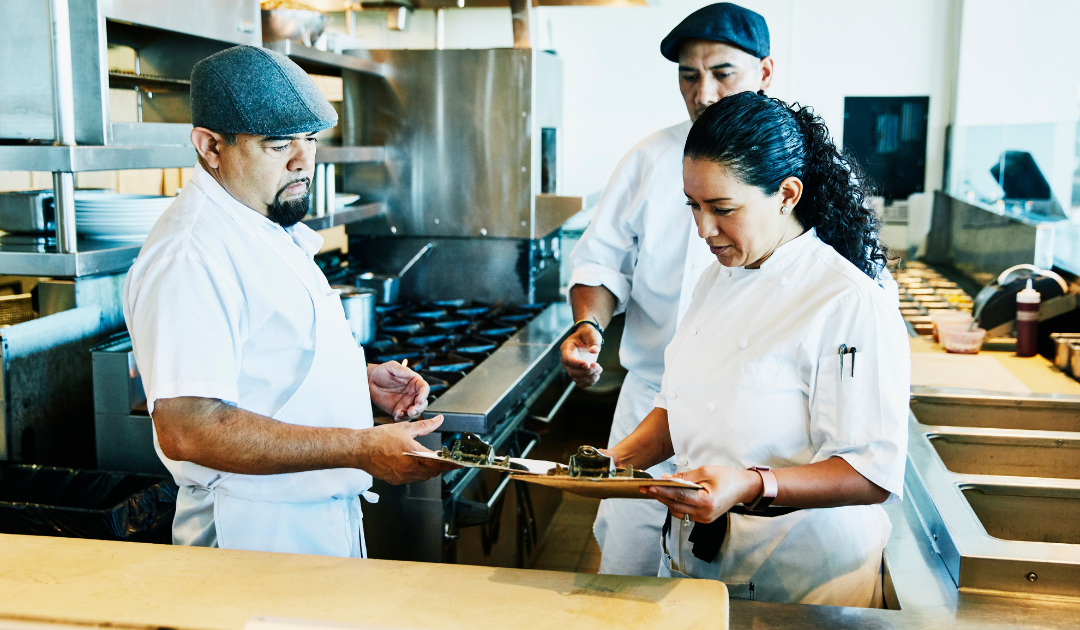Synopsis
Evaluating candidates in the restaurant industry requires a careful and comprehensive approach to ensure that the right individuals are selected for various roles. This report examines vital candidate evaluation tips for the restaurant industry and outlines best practices for identifying top talent. The evaluation process includes assessing technical skills, customer service aptitude, cultural fit, and adaptability. Additionally, conducting behavioral interviews, skill-based assessments, and reference checks are valuable tools to make well-informed hiring decisions. By implementing these tips and best practices, restaurants can build a skilled and engaged workforce that enhances their success and reputation.
Introduction
The restaurant industry’s success depends on attracting and retaining top talent. Evaluating candidates effectively is crucial to identifying individuals with the required technical skills, customer service aptitude, and cultural fit. This report explores essential candidate evaluation tips in the restaurant industry and presents best practices to ensure thorough and successful hiring decisions.
Identifying Technical Skills
The restaurant industry relies heavily on technical skills specific to various roles. Critical tips for evaluating technical skills include:
- Administer role-specific assessments to evaluate candidates’ proficiency in culinary skills, bartending, serving, or other specific job requirements.
- Incorporate hands-on demonstrations, such as mock cooking sessions or sample menu creation, to assess candidates’ practical abilities.
- Verify candidates’ certifications and credentials to validate their qualifications.
- Evaluate candidates’ previous experience in similar roles or restaurant settings to gauge their level of expertise.
Assessing Customer Service Aptitude
Customer service is paramount in the restaurant industry. Tips for evaluating customer service aptitude include:
- Use behavioral interview questions to assess candidates’ past experiences and responses to customer service scenarios.
- Incorporate role-play exercises to gauge candidates’ ability to handle customer interactions in a simulated environment.
- Assess candidates’ empathy and communication skills, which are essential for building positive customer relationships.
- Evaluate how candidates handle difficult situations and customer complaints professionally and tactfully.
Cultural Fit and Teamwork
Cultural fit is vital for fostering a harmonious work environment. Tips for assessing cultural fit and teamwork include:
- Evaluate whether candidates’ values align with the restaurant’s mission.
- Ask candidates situational questions to gauge their approach to teamwork and collaboration.
- Include team members in the interview process to assess candidates’ compatibility with the existing team.
- Observe candidates during group or team-building exercises to gauge their interpersonal dynamics.
Evaluating Adaptability and Resilience
- The restaurant industry is dynamic and fast-paced, requiring adaptable and resilient individuals. Tips for evaluating adaptability and resilience include:
- Present candidates with hypothetical situations that require quick adaptation to assess their ability to handle change.
- Ask candidates about challenging situations they have encountered in their previous roles and how they overcame them.
- Evaluate candidates’ problem-solving skills and ability to think independently during interviews.
Behavioral Interviewing Techniques
Behavioral interviewing techniques provide valuable insights into candidates’ past behaviors and performance:
- Use the STAR (Situation, Task, Action, Result) method to structure behavioral interview questions and elicit comprehensive responses.
- Present candidates with scenarios relevant to the restaurant industry to assess their decision-making processes.
- Follow up on candidates’ responses with probing questions to delve deeper into their experiences and behaviors.
Skill-Based Assessments
- Skill-based assessments offer objective data to evaluate candidates’ abilities:
- For front-of-house positions, conduct a sample service test to assess candidates’ efficiency and customer interaction skills.
- Test candidates’ knowledge of the restaurant’s menu to gauge their familiarity with the offerings.
- For culinary positions, organize a cooking challenge to evaluate candidates’ technique and creativity.
Reference Checks
Reference checks are essential to verify candidates’ qualifications and gather feedback from previous employers:
- Ask references for specific examples of the candidate’s strengths and areas for development.
- Request feedback on the candidate’s performance, work ethic, and interpersonal skills.
- Inquire about the candidate’s fit within the previous work environment to assess potential cultural alignment.
Conclusion
Practical candidate evaluation is critical to successful hiring in the restaurant industry. By utilizing role-specific assessments, behavioral interview techniques, skill-based evaluations, and reference checks, restaurants can identify top talent that aligns with their technical requirements, customer service expectations, and cultural values. A thorough review ensures that the right individuals are chosen to contribute to the restaurant’s success, reputation, and overall growth. Implementing these tips and best practices will enable restaurants to build a skilled and engaged workforce, enhancing their competitive advantage in the dynamic and competitive restaurant industry.


Recent Comments